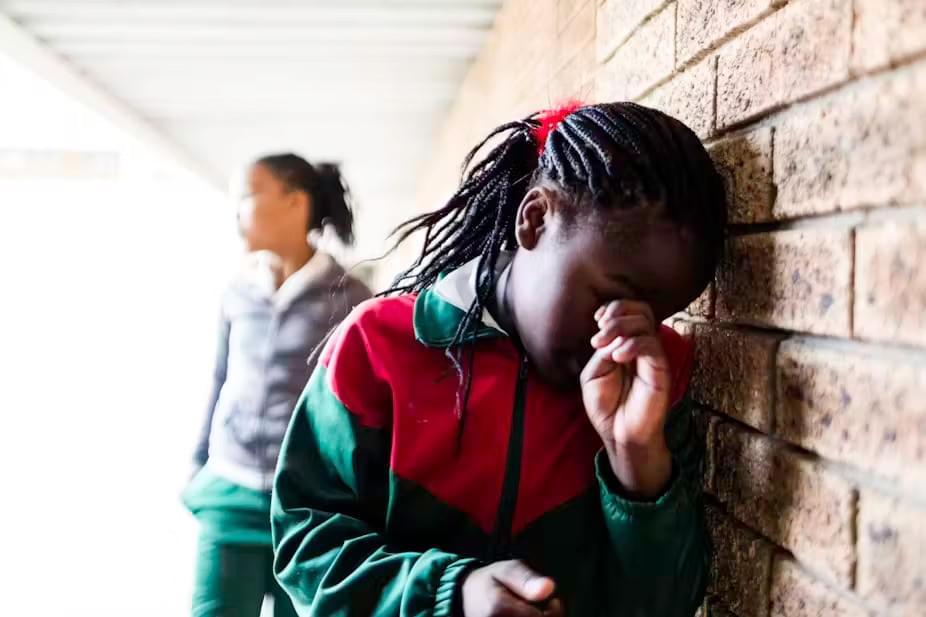
A storm has hit the small town of Dutywa in the Eastern Cape, where JS Skenjana Senior Secondary School is now under investigation for allegations of sexual abuse of learners by teachers.
The scandal began when a former learner took to social media to expose what many in the community have allegedly known for years — that certain educators at the school were accused of sexually abusing learners, yet somehow remained employed.
Her public post has reignited outrage and heartbreak, forcing the country to confront once again the question: how many more children must be violated before decisive action is taken?
It is reported that these allegations were not new, but have long been circulating in whispers through the corridors of the school and the streets of Dutywa. For years, it seems, girls and boys carried the unbearable weight of secrets that should have shaken the system into action.
And now, only after public exposure and social media pressure, are investigations being taken seriously. The Eastern Cape Department of Education has confirmed that a probe is under way, and the South African Police Service has been called to investigate. These developments, while welcomed, come far too late for those whose childhoods were stolen behind classroom doors.
For many of us who work in the fight against child sexual violence, this story is devastating — but it is not shocking. It is a symptom of a broader and shameful reality: that our schools, meant to be places of safety and learning, have become crime scenes for some children. Reports of teachers preying on learners are not isolated.
In the Province of Estern Cape, from Mthatha to Lusikisiki, from East London to Gqeberha, we have heard similar cries from children who were supposed to be protected by the very people they trusted most.
The tragedy at JS Skenjana forces us to ask difficult questions about the culture of silence and impunity that protects perpetrators. Why are known abusers still standing in front of classrooms? Why do learners who report abuse face intimidation or disbelief? Why do parents have to rely on social media before the system responds? The truth is that the mechanisms meant to protect learners — from school governing bodies to district offices — have failed them time and again.
It is also deeply concerning that the investigations into sexual abuse at schools in the Eastern Cape come alongside reports of drugs being sold to learners in the same areas. We cannot separate these two issues. A child who is unsafe at school is a child whose life trajectory is at risk — emotionally, physically, and academically.
These overlapping dangers create an environment where exploitation thrives. If we fail to act now, we will raise another generation scarred by trauma and distrust.
As The Great People of South Africa (TGPSA), a survivor-led organisation, we are once again reminded why our work exists. Our mission is to protect children, empower survivors, and demand accountability from systems that too often enable abuse.
Through our Community Legal Empowerment and Court Support programmes, we walk alongside survivors — including children — as they navigate the harsh realities of the criminal justice system. We understand the trauma of having to testify, the fear of facing your abuser, and the isolation that comes when your truth is doubted. We also understand the silence, because many of us have lived it.
The events in Dutywa must push South Africa into decisive action. Every teacher implicated in sexual abuse must be suspended immediately pending investigation. Every school must have mandatory safeguarding training for educators, with clear, confidential reporting channels for learners.
The Department of Education must strengthen partnerships with organisations like ours that work directly with survivors and communities, ensuring that cases do not vanish in bureaucratic corridors. And the justice system must treat these crimes not as scandals, but as acts of violence deserving the same urgency as murder.
To the brave former learner who spoke out: you have done what many could not. Your courage has reopened a conversation that the system tried to bury. And to the current learners who might still be afraid — please know that you are not alone.
There are people and organisations ready to stand with you, protect you, and make sure your voices are not lost in the noise of official statements.
We must now rebuild trust in the idea of school itself. Because no child should ever fear the classroom. No learner should ever be forced to trade safety for education. And no teacher who violates a child’s body or trust should ever again stand before a blackboard.
This is not just about JS Skenjana Senior Secondary School. It is about every child in South Africa who walks through school gates hoping for opportunity, not abuse. It is about a nation’s duty to protect its youngest citizens.
Justice must not only be done — it must be seen, felt, and believed by every learner who dares to dream of a safer tomorrow.
#SafeSchools #SJSkenjanaSS #ProtectOurChildren!!

